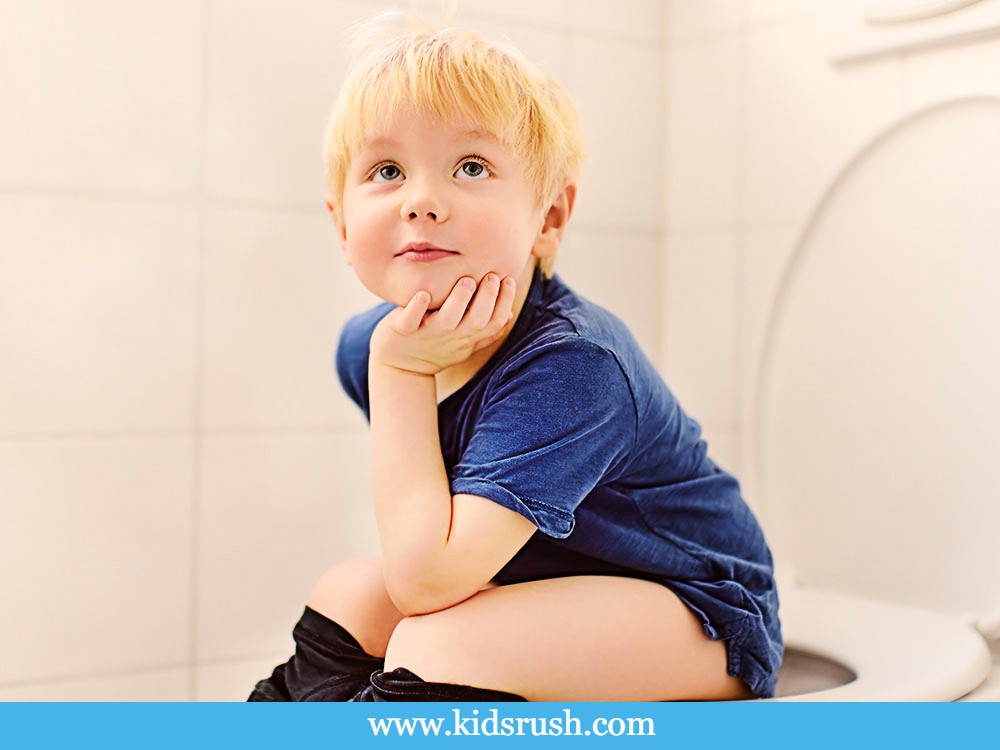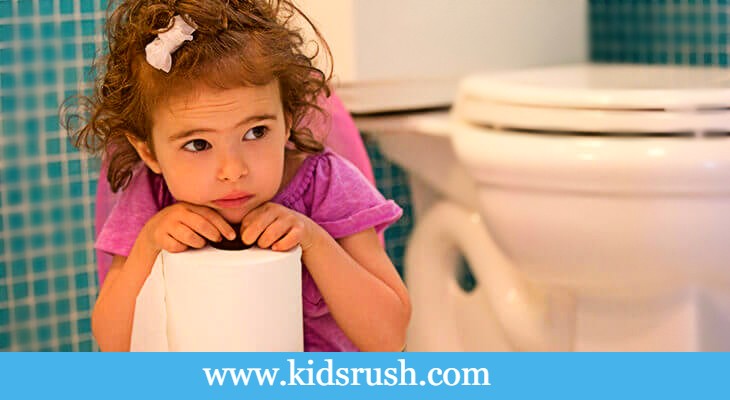Although constipation can accompany various diseases, it is most often caused by a diet low in plant fiber or by a low intake of water. Under these conditions, the amount of waste in the intestine is insufficient and its function is not correct. Constipation is usually due to a change in the child’s eating habits, although it can also be caused by pain caused by an anal fissure (the pediatrician should assess it). In this case, sitz baths with warm water will be recommended. If constipation is caused by a deficiency in vegetable fibers or a low intake of water, the following tips may be useful for your child. In this article, we will share with parents some tips to prevent constipation in children from 0 to 36 months.
Diet
- Make the child drink more water.
- Make your child eat more vegetables of all kinds, raw or cooked (chard, celery, spinach, lettuce, etc.).
- Give him plenty of natural laxative fruits, compote, or blended. Avoid apples and bananas.
- Add 5-10 cc of crude oil to meals.
- Give your child whole grains: brown rice, whole oats, wheat, or corn flakes.
- Give her special whole-wheat or whole-wheat bread, cookies, cakes, biscuits, and pasta (noodles or macaroni).
- Add apple syrup or honey with the yogurt or a fruit salad.
- Give him legumes once or twice a week.
- In this scenario, kidsrush.com recommends you to read this article: 8 Foods for growing children well
Natural laxatives allowed during constipation in children
- Black or fresh plums.
- Raisins (Californian) in the compote.
- Non-digestible vegetable fiber.
Other recommended foods during constipation in children
- Wheat bran (add a tablespoon to the soup).
- Soy sauce (often used as a dressing for taste and its richness in protein).
- Dextrinated bread (it is a bread treated specially and sold in biscuits).
- Coarse sea salt, which, unlike fine table salt, contains magnesium and iodine, very necessary elements for a balanced diet.
- Wheat germ, mixed with yogurt or salads.
Food not recommended during constipation in children
- Potatoes and starches.
- White bread, buns, or white pastries.
- Sausages, foie gras, or jams.
- Noodles, macaroni, spaghetti, or gutters if they are not made with whole wheat flour.
Some useful tips to prevent constipation in children
It is convenient to remind the child to go to the bathroom once a day (at least). If it is difficult at first, you can stimulate him with small enemas or glycerin suppositories choosing a time when the environment is calm (preferably after any of the meals). You can do this daily and then alternate days (check with your pediatrician). When the child manages to defecate on his own, we should reward him with an object that he likes or allowing him to do something especially fun for him.
Laxatives should be avoided if they are not prescribed by a doctor and are only prescribed in very specific cases. You should not give the child laxatives without first consulting with the pediatrician. If you see blood in your child’s stool, incontinence, or periods of diarrhea/constipation, call your pediatrician and ask her what to do.
QUESTIONS AND ANSWERS ON CONSTIPATION IN CHILDREN

1.- In my family, almost everyone suffers from chronic constipation and I don’t want my daughter to have problems too. How to prevent it?
First of all, the diet must be adequate: 2-3 servings a day of fruit and 2-3 servings a day of vegetables, crude olive oil 5-10 ml a day and drink enough water. Second, correct discipline, each day at the same time, sitting down to evacuate and, finally, proper posture, sitting or squatting, with feet comfortably supported during the evacuation.
2. My 2-year-old shows no interest in controlling his bowel movements, is this normal? Should I force it?
If the child does not show interest in the control of his anal sphincter, attempts to force this control before the age of 2 and a half to three years is not recommended, as they can lead to a voluntary rejection of such control and to functional constipation, which it can be very troublesome.
3. Is it true that milk causes constipation in children?
Excessive consumption of milk after one year of age is a cause of constipation in children. Since it involves low consumption of foods rich in fiber (fruits and vegetables), but not because of the milk itself, but because it is a poorly varied diet, low in fiber and inadequate. It is often called lactose intolerance. If you want to know answers about lactose intolerance then visit this article: 5 questions about lactose intolerance in children.
4. Is it true that a normal child should go to the womb every day?
No. If there is no difficulty in passing the stool and its consistency is not hard, it may be sufficient and normal to evacuate three times a week.
5. What is encopresis? Is it related to constipation?

It is defined that a child suffers from encopresis if they do not want and/or cannot control their anal sphincter, that is, they present incontinence, in the absence of organic intestinal or rectal disease, for which they present involuntary defecations, at least once a month for 3 months. It usually presents between 2 and 4 years of age and is associated with functional constipation, so the stool “escapes” due to overflow.
6. My son never wants to go to the bathroom, even though he wants to, he holds on. He eats a lot of vegetables and fruits and the pediatrician does not find anything for him: what is the cause of “voluntary” constipation?
“Voluntary” constipation can be due to affective disorders, generally linked to an oppositional attitude of the child due to excessive control by the adult or due to an excessively early and forced training of sphincter control. If it is not resolved it can lead to encopresis. It is important to rule out a problem of the intestine or rectum or neuromuscular control as a primary cause.
7. Since my 3-year-old girl uses the toilet as we do, she has trouble evacuating. Why is it if I already put a special “reducer” to adapt the toilet bowl to small children?
The appropriate posture for a correct evacuation of stool in a sitting position with the feet well supported on the floor or squatting. Many young children experience constipation and even anal fissures from the poor position of using the adult toilet bowl. Use a potty again or set up a stool so that the child can support her feet while she takes her bowel movements.
8. At what age should children learn to control the anal sphincter?
Control of the emission of feces or bowel movements in children usually begins to be acquired from the age of 2 years (sometimes – in girls, especially – from 18 months), and can be somewhat earlier than control of the emission of urine. From the age of 4, most experts already consider a lack of control of the anal sphincter a pathological fact.
9. My 3-year-old has a tendency to be constipated. The other day she cried a lot while pooping and bled a little. Could it be that such a young child already has a fissure in the anus?
An anal fissure can also occur in young children as a result of a very hard stool or explosive diarrhea. Unlike adults, they can present multiple fissures and in any location. You can treat it with cold or warm water washes, healing or anesthetic ointments, and mild laxatives for a few weeks, along with a review of the child’s diet to combat chronic constipation. Consult with your pediatrician.
10. Is it possible for a child to have hemorrhoids? The other day my child complained during the stool and when I looked at his anus I saw that it came out a little, something like a fairly large hemorrhoid.
Hemorrhoids are rare in childhood, although they may form in cases of chronic constipation. Most often, if the child suffers from constipation, the child has previously suffered from a fissure and presents a somewhat thickened crease of the anus, the so-called “sentinel crease” as a result of the healing of a fissure that takes time to evolve. The rarer anal prolapse, which is a protrusion of the anal mucosa, partially or, due to the effort of defecation, which can occur in children 2 years of age or younger, especially if they have intestinal malabsorption, should also be ruled out. Consult with your pediatrician.
